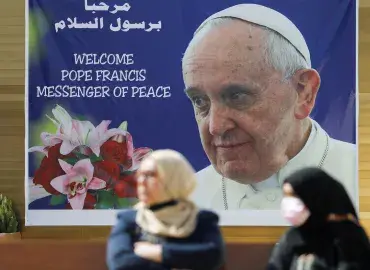The KAICIID-supported Platform for Dialogue and Cooperation in the Arab World establishes a ‘Common Citizenship Team’ in Iraq
The KAICIID-supported Platform for Dialogue and Cooperation in the Arab World establishes a ‘Common Citizenship Team’ in Iraq
Iraqi religious leaders and members of civil society came together to form a ‘Common Citizenship Team’, the members of which will work together to rebuild and protect Iraqi communities from the effects of violent extremism, and to advocate for equal rights for all.
30 representatives from religious institutions and civil society organizations convened in Erbil from 17-18 December 2018 to discuss the challenges and opportunities of common citizenship. The participants came from all around Iraq, and included representatives from almost all the religious and ethnic groups in this historically diverse country, including Sunni, Shia, Christians, Yazidis, Shabak, Sabean, Baha’i, Kakai and others.
Many participants shared inspiring stories of hope and coexistence, especially in facing the aftermath of the destruction caused by the so-called ISIS in many Iraqi communities.
The discussions were notable for their constructive and open nature. Participants discussed ways to build a citizenship framework for Iraq which would be inclusive and respectful of the equal rights of all. Their recommendations and discussions indicated a high level of willingness and readiness to engage religious and policy makers in such a citizenship framework. .Participants suggested that the establishment of a Common Citizenship Team at the national level in Iraq would enhance social cohesion and peaceful coexistence in the country.
The Common Citizenship Team will work on developing an Action Plan with clear goals and concrete initiatives, and will operate with the support of the KAICIID-established Platform for Dialogue and Cooperation in the Arab World.
The Common Citizenship Team will focus on the roles of religious institutions and civil society organizations by engaging them in the work necessary to enhance peaceful coexistence, promote dialogue, and build sustainable peace across the nation, bringing together religious leaders with policy makers for shared solutions for peace.


